News
Construction cause of Durham creek sedimentation
Posted on June 23rd, 2022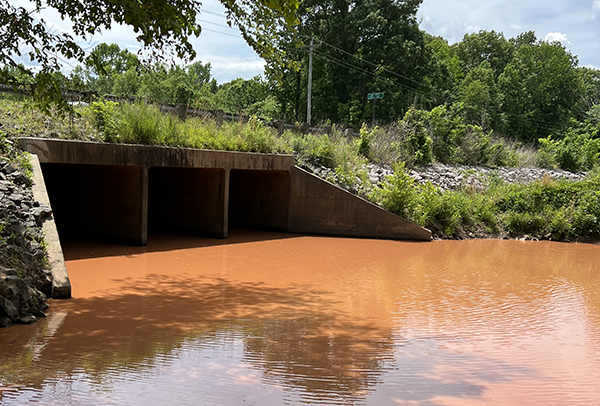
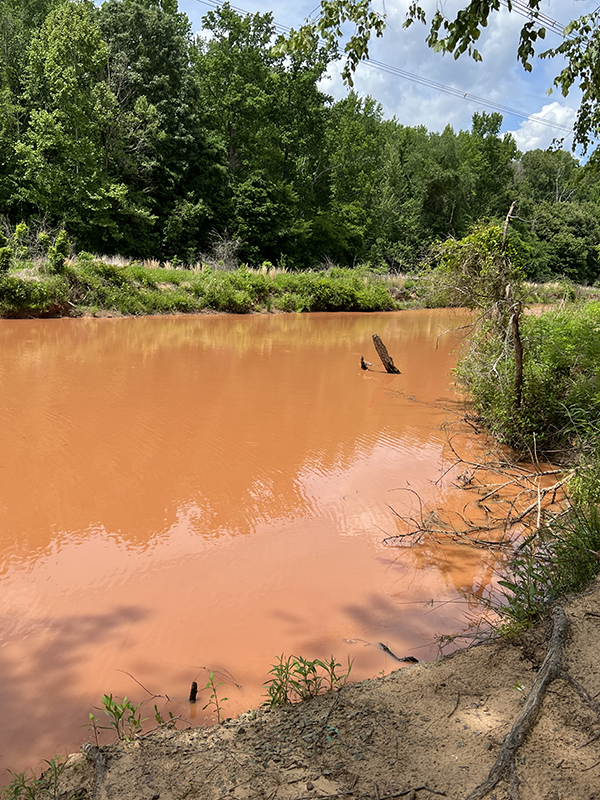 A Durham creek is turning bright orange after rain events, a phenomenon which can likely be attributed to one or more of the 11 construction sites surrounding it.
A Durham creek is turning bright orange after rain events, a phenomenon which can likely be attributed to one or more of the 11 construction sites surrounding it.
Concerned residents recently reached out to Neuse Riverkeeper Samantha Krop to see what can be done about the excessive runoff into Lick Creek. The creek — which empties into the nutrient-sensitive drinking water supply of Falls Lake Reservoir three miles downstream — is already listed as biologically impaired by the state.
“I am concerned about the quantity of sediment being deposited into Lick Creek,” Sam wrote to North Carolina Department of Environmental Quality’s Division of Water Resources staff, describing a situation where multiple developments are currently being constructed simultaneously. “I am also concerned that the issue will continue to worsen with future development ongoing in the area,” she added.
The Neuse River and its tributaries have been greatly impacted by sediment pollution from expansive growth and development over the past 50 years. Sediment pollution can impact the quality of streams and rivers, smothering aquatic habitat and reducing fish populations, and negatively impact the quality of drinking water sources, increasing costs for treatment, as well as increasing the cost and burden of maintaining stormwater infrastructure.
“I have been in communication with Durham County Erosion and Sediment Control Supervisor, Jonathan McNeil, who has been working to pull together the inspection reports from the 11 or so developments underway in that immediate area. According to McNeil, only one Notice of Violation … has been issued by Durham County thus far, so it is hard to say if this sedimentation issue is coming from one out of compliance development or the cumulative impacts,” Sam said.
 On Monday, July 11, the Durham City-County Planning Board will consider another rezoning request in the same vicinity, this time for a 280-acre development. Three weeks ago, the board recently approved another, smaller, development.
On Monday, July 11, the Durham City-County Planning Board will consider another rezoning request in the same vicinity, this time for a 280-acre development. Three weeks ago, the board recently approved another, smaller, development.
Sam has brought the Lick Creek sedimentation issue to the attention of our partners with the Southern Environmental Law Center.
This article will be updated as new information becomes available.
Related News
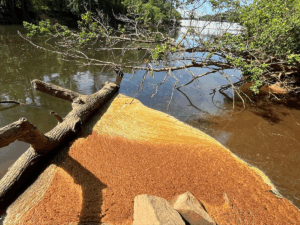
DEQ issues notice of violation to Rocky Mount
July 17th 2025

Specialist tracking pollution impacts on urban waterway
July 17th 2025

Riverkeeper tracks post-Chantal pollution on the Eno
July 17th 2025
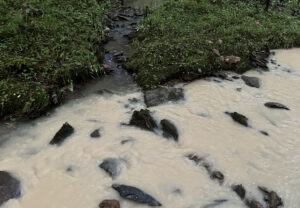
‘Power Bill Reduction Act’ will raise costs, climate-change risk
July 17th 2025
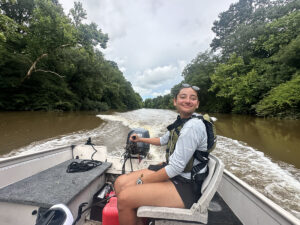
Riverkeepers track down purposeful pollution
July 17th 2025

Riverkeeper, program assistant show up for Pride on the Tar
July 17th 2025
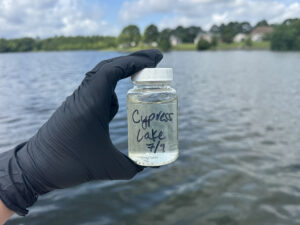
Specialist investigates lake connection to mysterious skin rash
July 10th 2025

Riverkeeper: Central NC flooding part of a much larger issue
July 10th 2025

